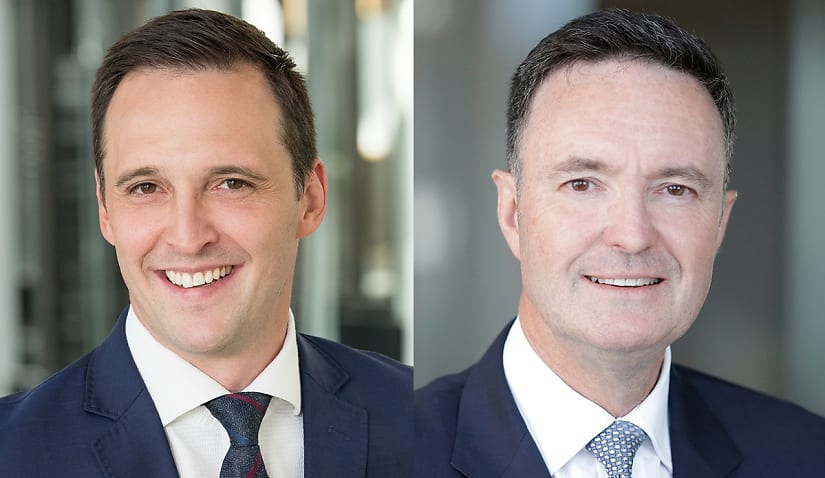Two experts have underscored the importance of comprehensive financial planning before lawyers embark on their journey towards law firm partnership.

Speaking on a recent episode of The Lawyers Weekly Show, Commonwealth Private’s national director of professional services, Alen Sirol, and Clayton Utz’s former chief executive partner, Bruce Cooper, shared how vital it is for lawyers to understand the complexities involved in financial planning before even moving up the ranks.
“Get advice early and speak to professionals as if you’re already a partner or heading towards partnership and make sure you get the right financial advice, particularly when making really big financial decisions, like buying a home, things of that nature.”
Mr Cooper echoed the advice, candidly sharing how his own experiences prior to becoming a partner have shaped how he approaches financial decisions today.
“I was a bit of a callow youth and didn’t think particularly hard about those sorts of issues. I was happy that I was earning good money and was therefore happy to spend it,” he admitted, speaking of his first years in practice.
“As with all things, experience tends to shape your views looking backward, and I thoroughly agree that the task set for young lawyers is two-fold. It’s really to keep those options open, depending on where you want to go in your career, and to constantly reassess where those options might take you.
“It’s the same thing when looking at your financial health: keep your options open constantly, look and redefine where you think you’re going to be.”
Mr Cooper emphasised the value of seeking professional financial advice, noting it’s never too early to start.
“The idea of thinking early about financial investments, I think, is critical. One, because it doesn’t cost you anything to do that, to get advice, and that’s an important thing. Secondly, having made some early-career decisions about acquisitions in real estate by the time I got to partner, I thought that perhaps I would have done better with some advice.
“So, if advice is being given to you and people want a long-term future and that doesn’t come with any real strings, then I would advise people to take it. It’s [about] keeping those financial as well as professional options as open as you possibly can,” he said.
Making the time
With so much on their plates, it’s easy to see why some lawyers let their financial planning fall to the wayside. However, both Mr Cooper and Mr Sirol outlined the necessity of carving out time for this, noting there are ways to practically get it done.
For Mr Cooper, it comes back to proper delegation and outsourcing.
“Ultimately, how do you find the time? You delegate a bit of that, finding the time to somebody else. You delegate to someone who is your adviser or your mentor, and they create the discipline within you to be able to take the time yourself,” he said.
“If you’re not sufficiently disciplined, and many of us aren’t, then what I’ve found in my career is, and it could be a spouse, it could be a mentor, it could be an advisor, it could be all three. But if you outsource just a little bit of that … then I think that helps enormously. Left to our own devices, we’ll always default to that which is easiest for us, which is simply the practice of law.”
Meanwhile, Mr Sirol reiterated the importance of gaining support and guidance from those in the financial planning space.
“Look, in terms of our business, just to give you an example, we are one of those trusted partners. We act in that capacity. So, we’re here to provide you with the understanding, take away the complexity and translate that into what is easily understandable and can be then translated back into a plan that’s suitable for the future of that specific individual,” he explained.
“The right support is critical, whether that be someone that’s going to assist you with debt, like a private bank on the advice side, a financial planner, and also in terms of structuring and understanding legal liability and understanding tax consequences, having the right accountant as well.
“It’s really just about speaking to that mentor, speaking to those individuals around you and saying, ‘Look, who have you had a good experience with? Would you mind introducing me?’ Take the time to find the right people. Once you’ve got the right people, you’ll be a lot better for it. And I think it’s as simple as that, really.”
This transcript has been edited slightly for publishing purposes. You can listen to the full episode here: